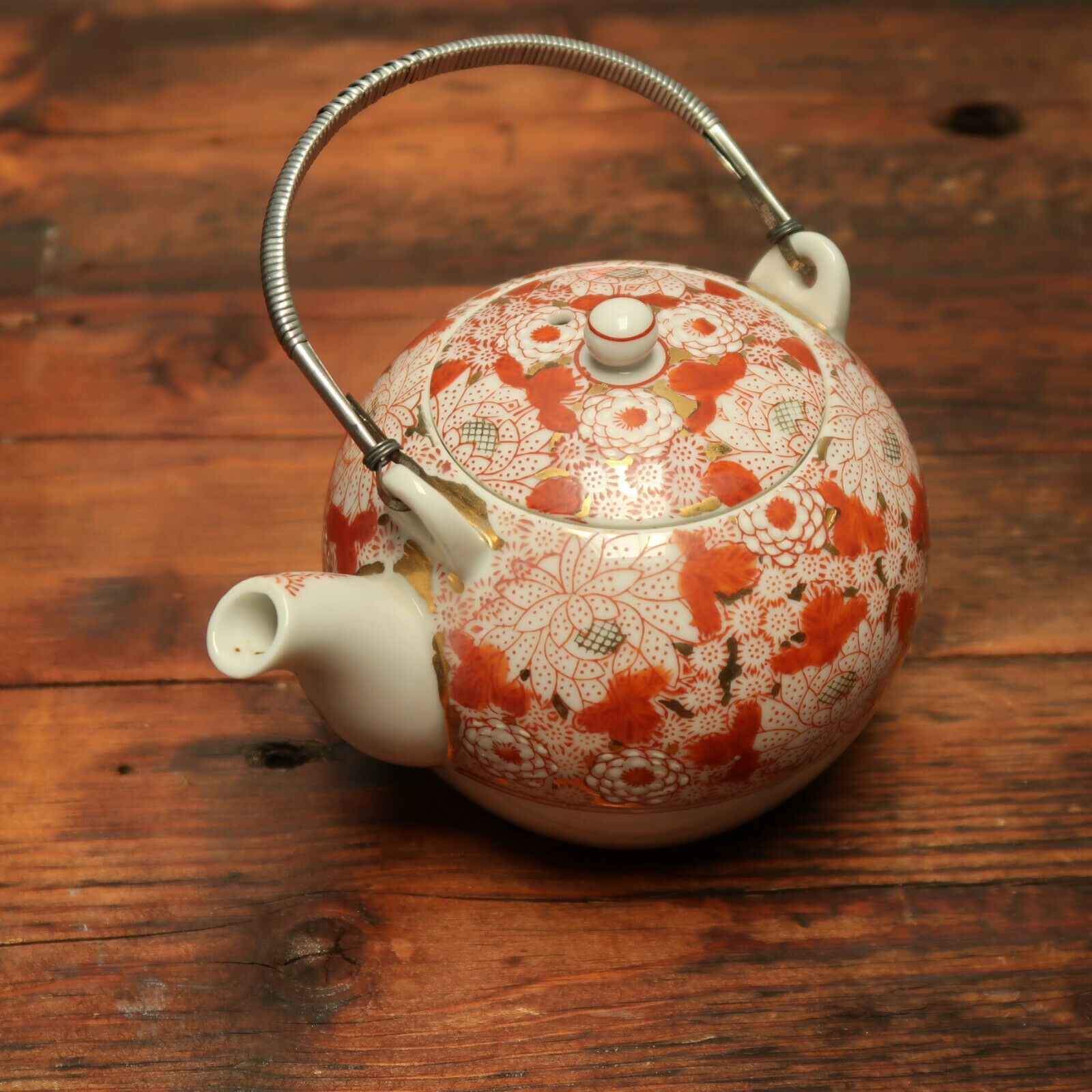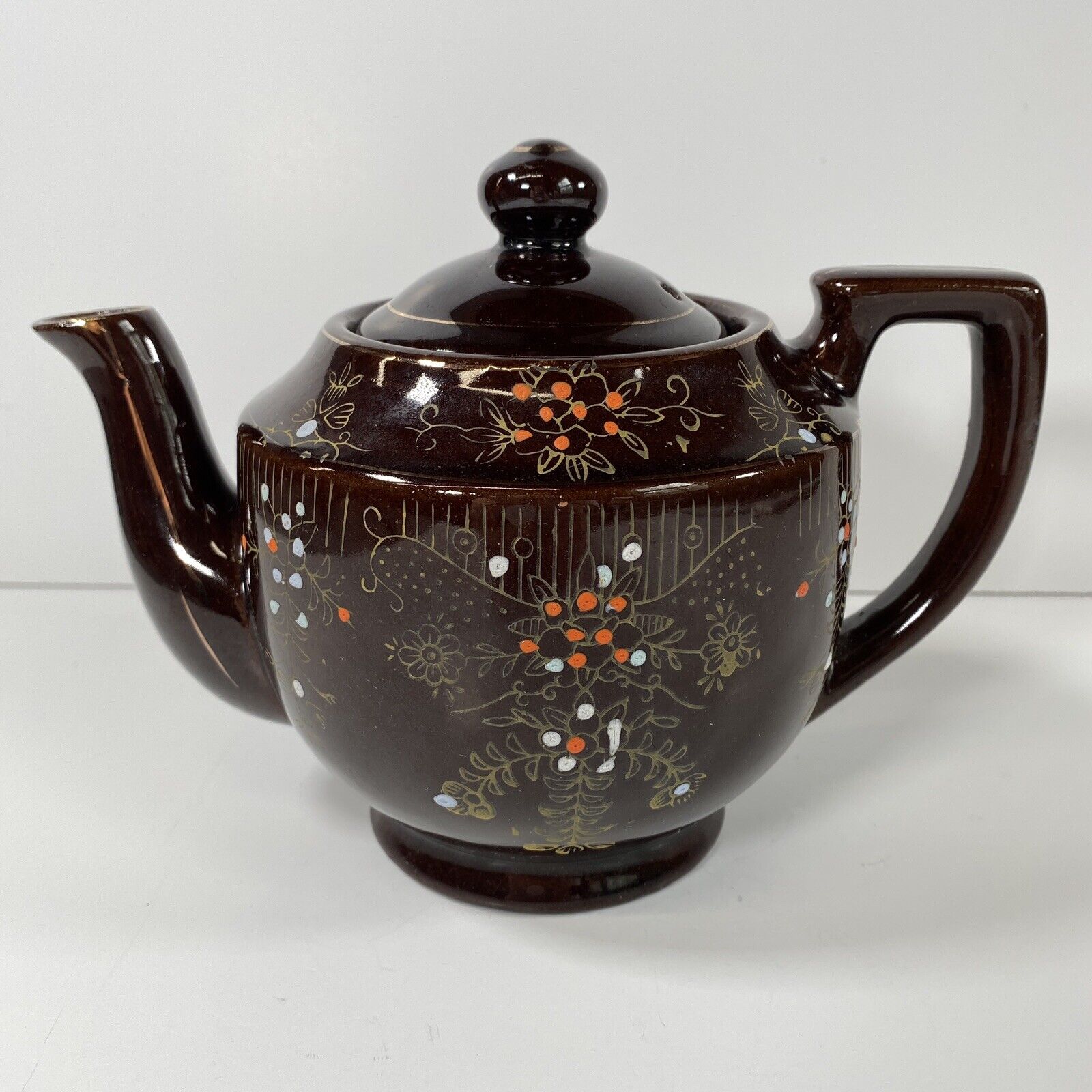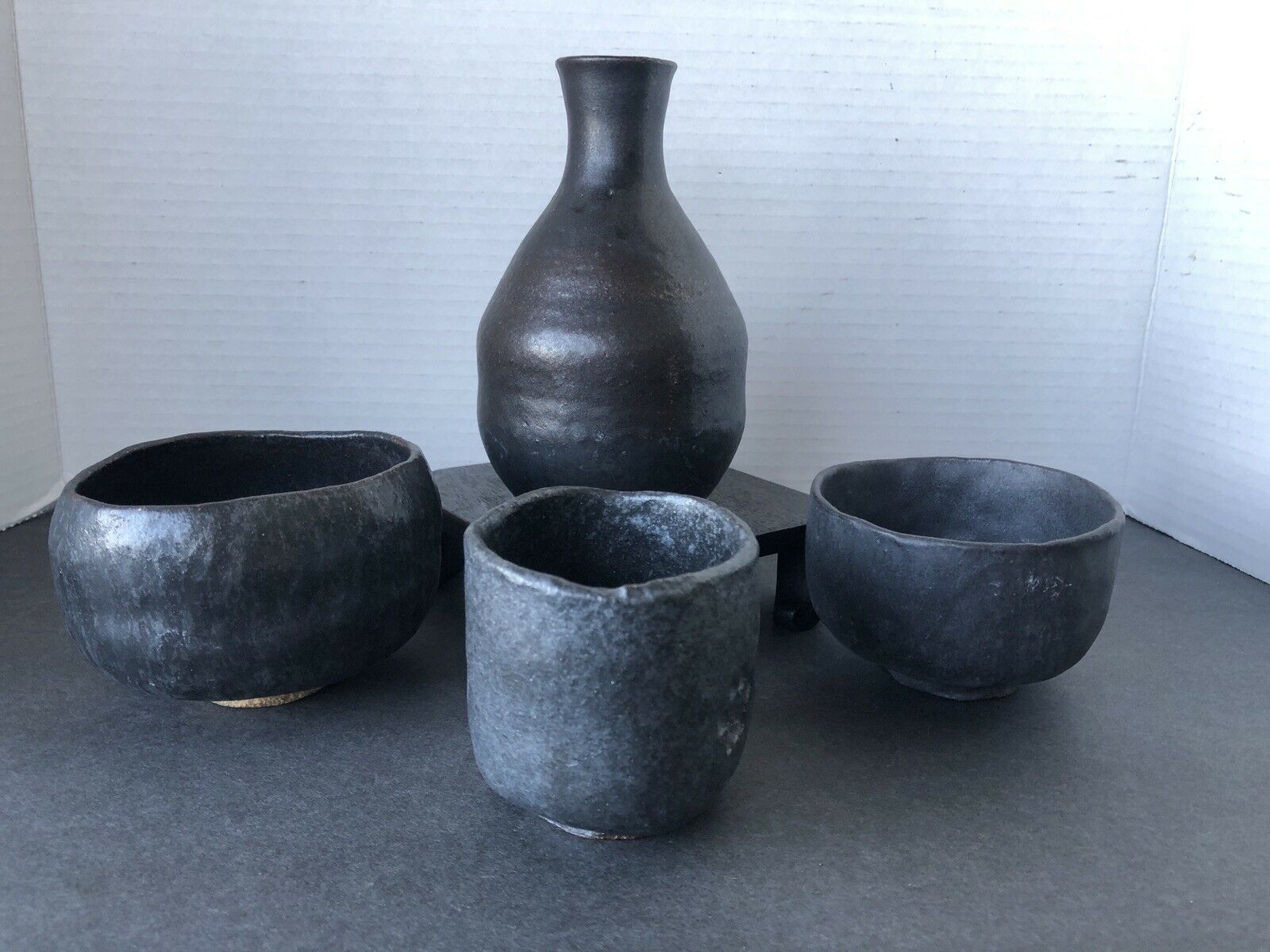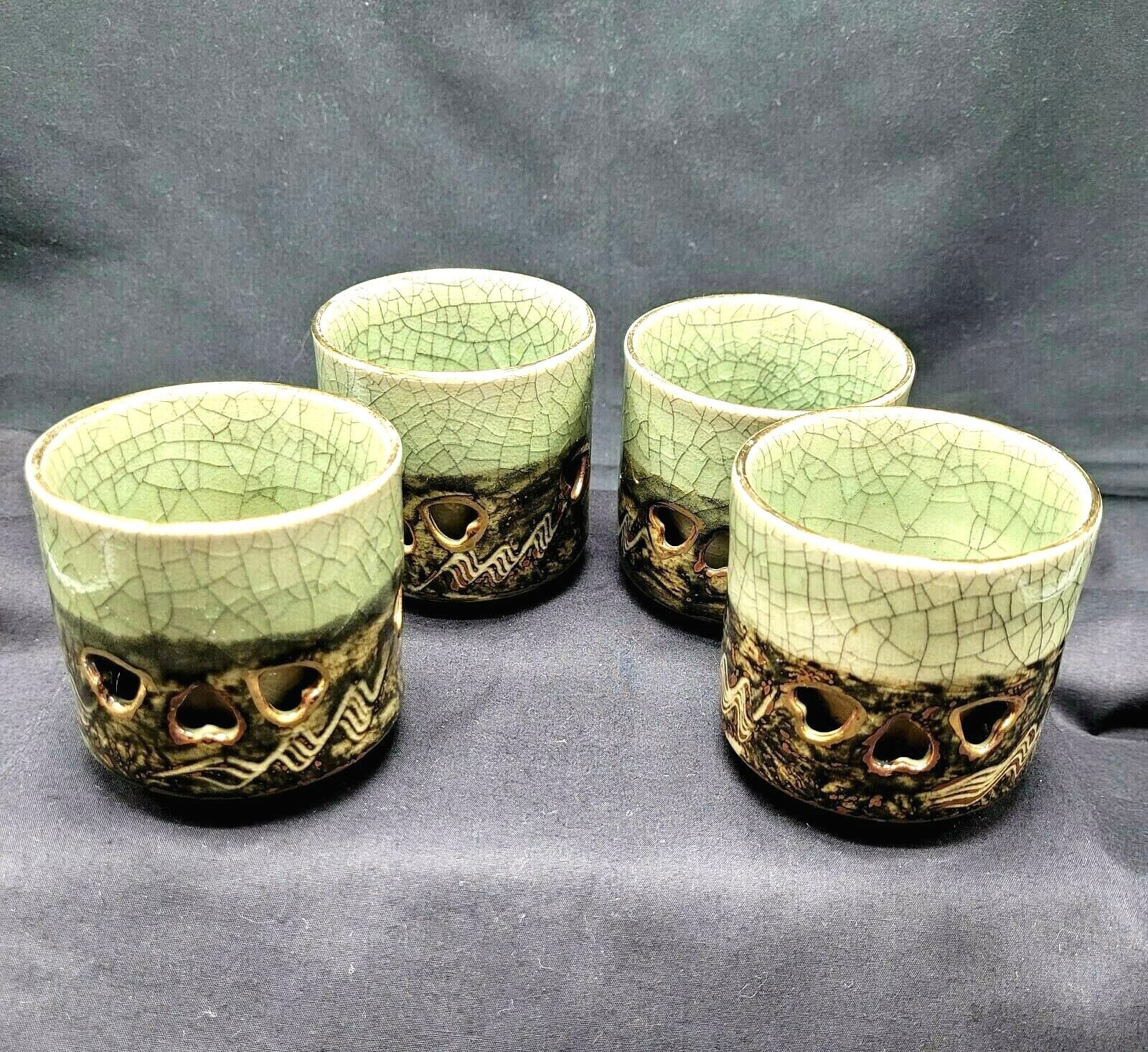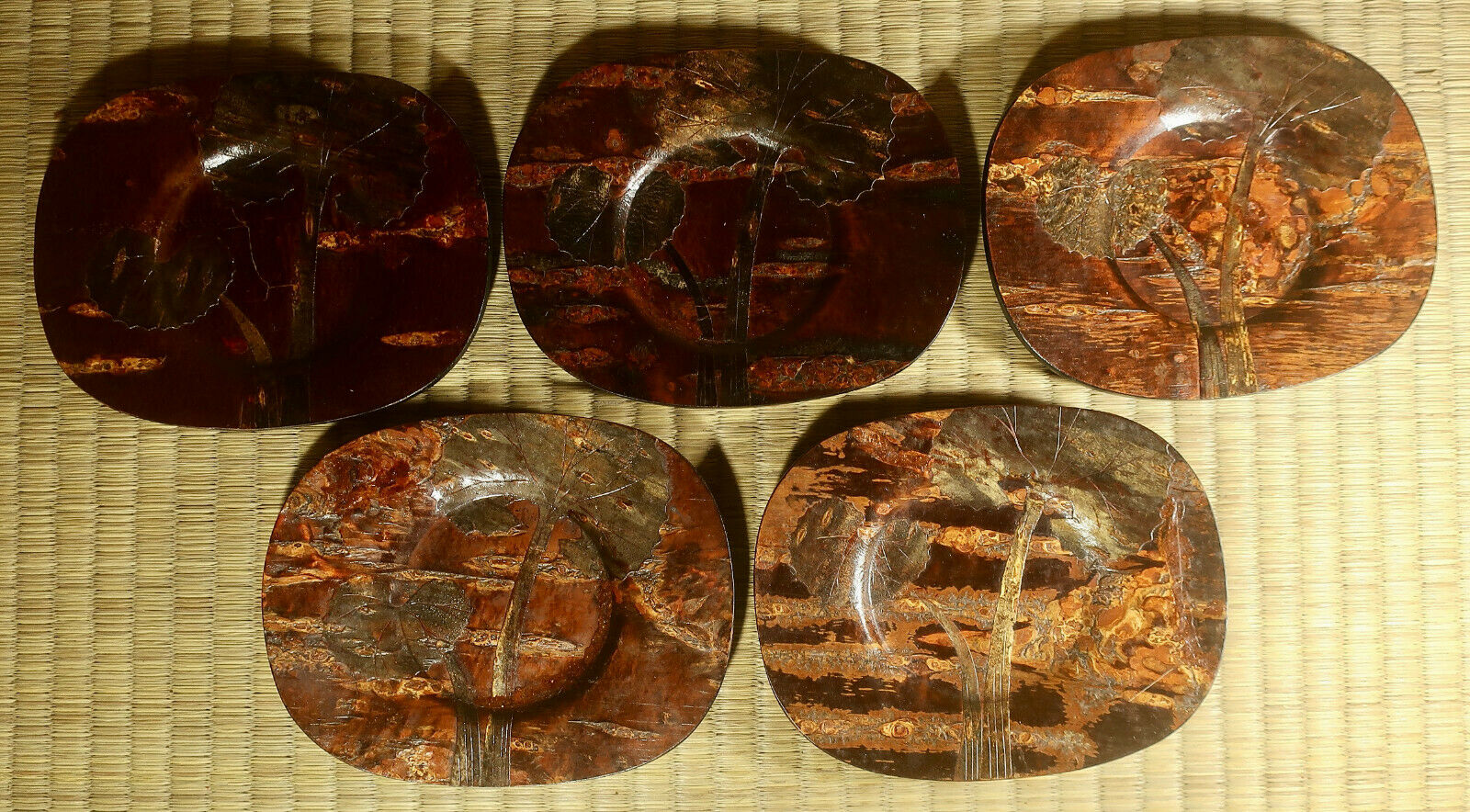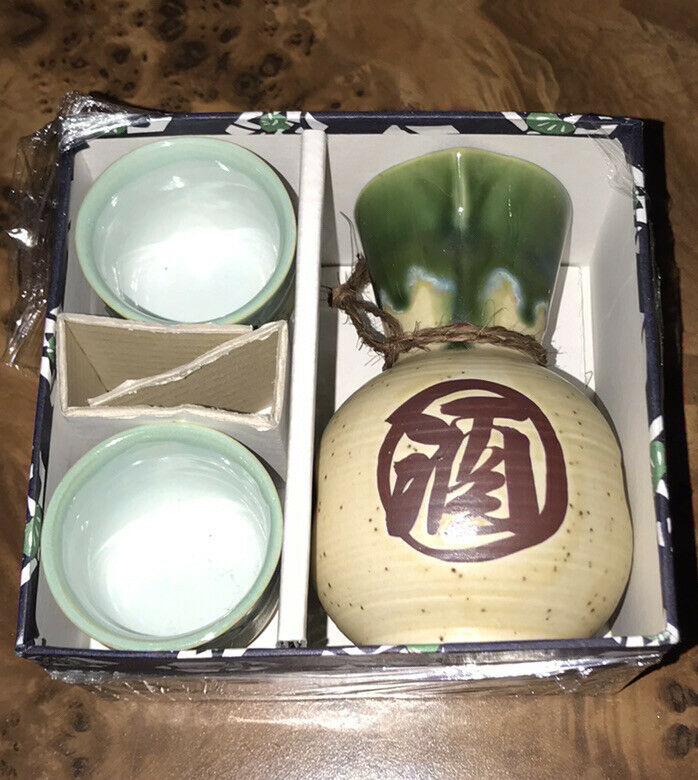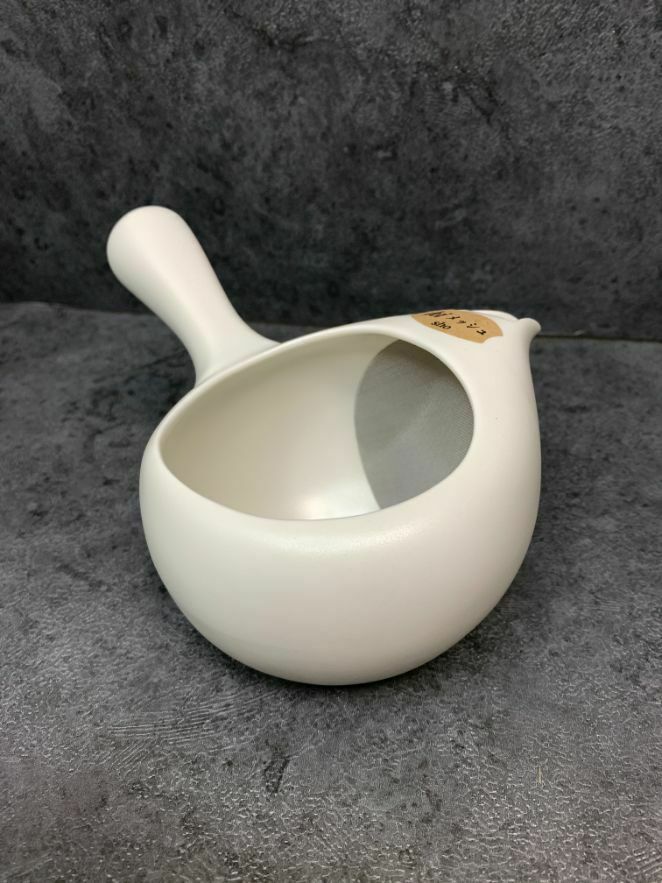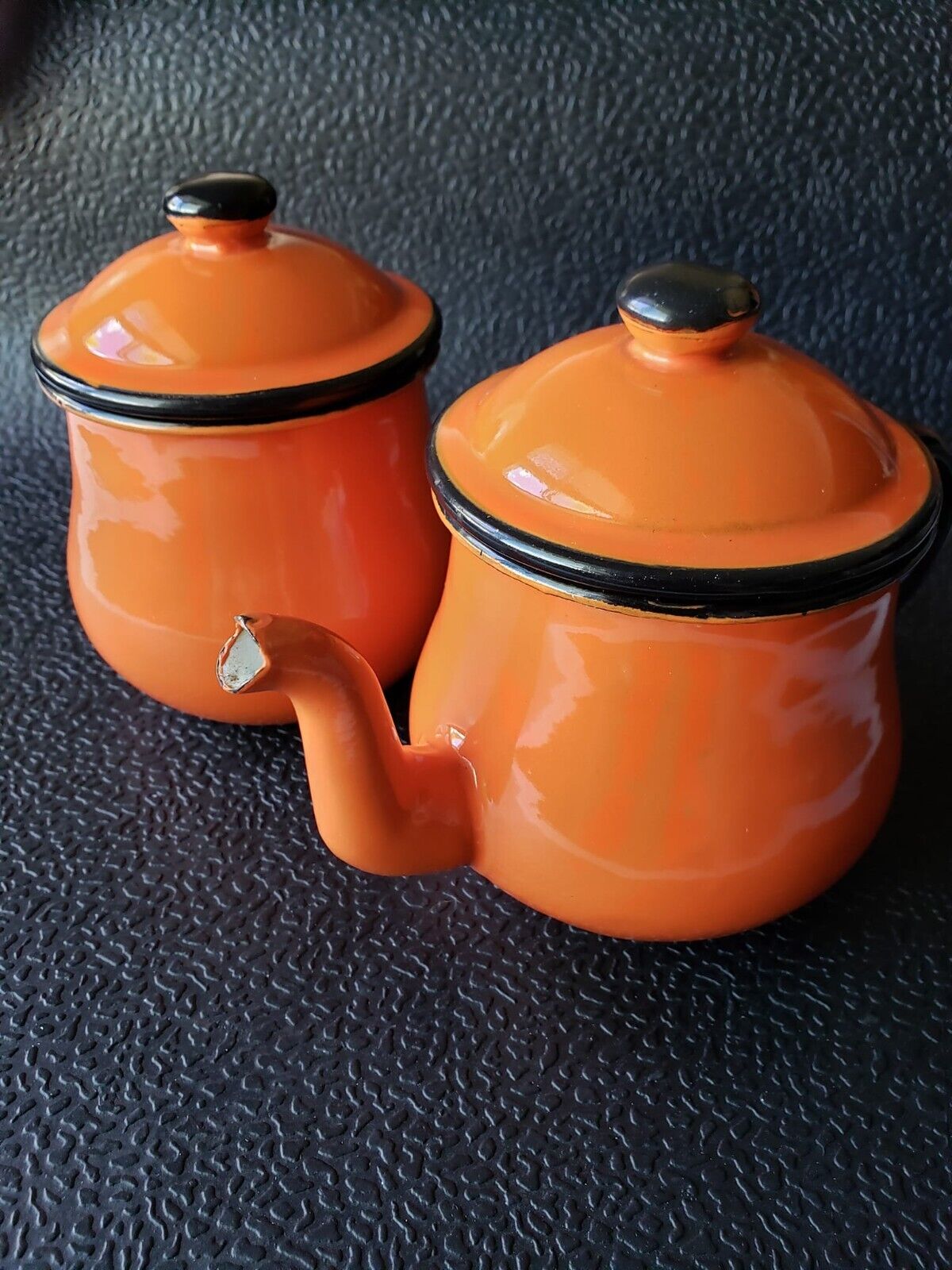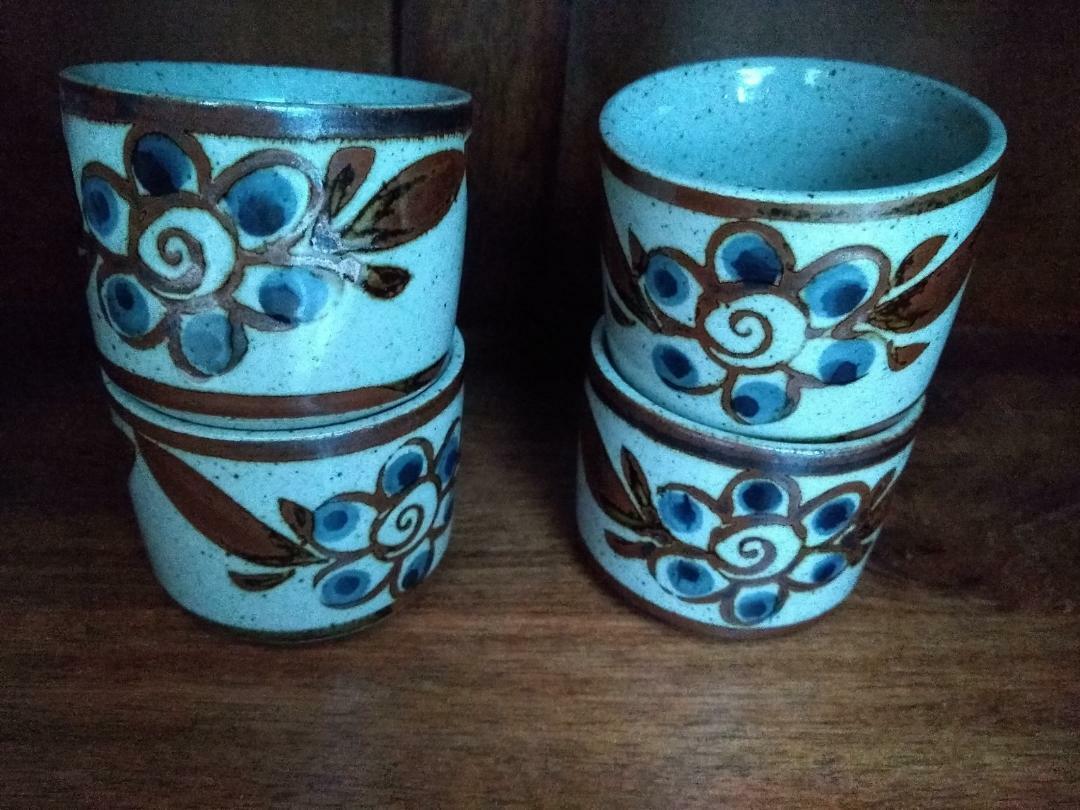-40%
Kutani Japanese Porcelain Teapot Floral Red Teapot 1 Pint
$ 9.5
- Description
- Size Guide
Description
Kutani Japanese Porcelain Teapot Floral Red Teapot 1 PintKutani ware
(
九谷焼
,
Kutani-yaki
)
is a style of
Japanese porcelain
traditionally supposed to be from Kutani, now a part of
Kaga, Ishikawa
, in the former
Kaga Province
. It is divided into two phases:
Ko-Kutani
(old Kutani), from the 17th and early 18th centuries, and
Saikō-Kutani
from the revived production in the 19th century. The more prestigious
Ko-Kutani
wares are recognised by scholars to be a complex and much mis-represented group, very often not from Kutani at all.
In recognition of the modern understanding that much, if not most, of the Ko-Kutani production was around
Arita
, the wares are now sometimes grouped with
Imari ware
(perhaps as "Ko-Kutani type"), or the wider groupings of
Arita ware
or Hizen ware.Kutani ware, especially in the
Ko-Kutani
period, is marked by vivid dark colors that epitomize lavish aesthetics. It is theorized that the long, harsh and grey winters of the
Hokuriku region
led to a desire among people living there for ceramic ware to show strong and bold colours. The classical five colours style is known as
gosai-de
(五彩手) which includes green, blue, yellow, purple, and red. The designs are bold and normally depict landscapes, the beauty of nature, and people, and cover most of the surface of each piece.
